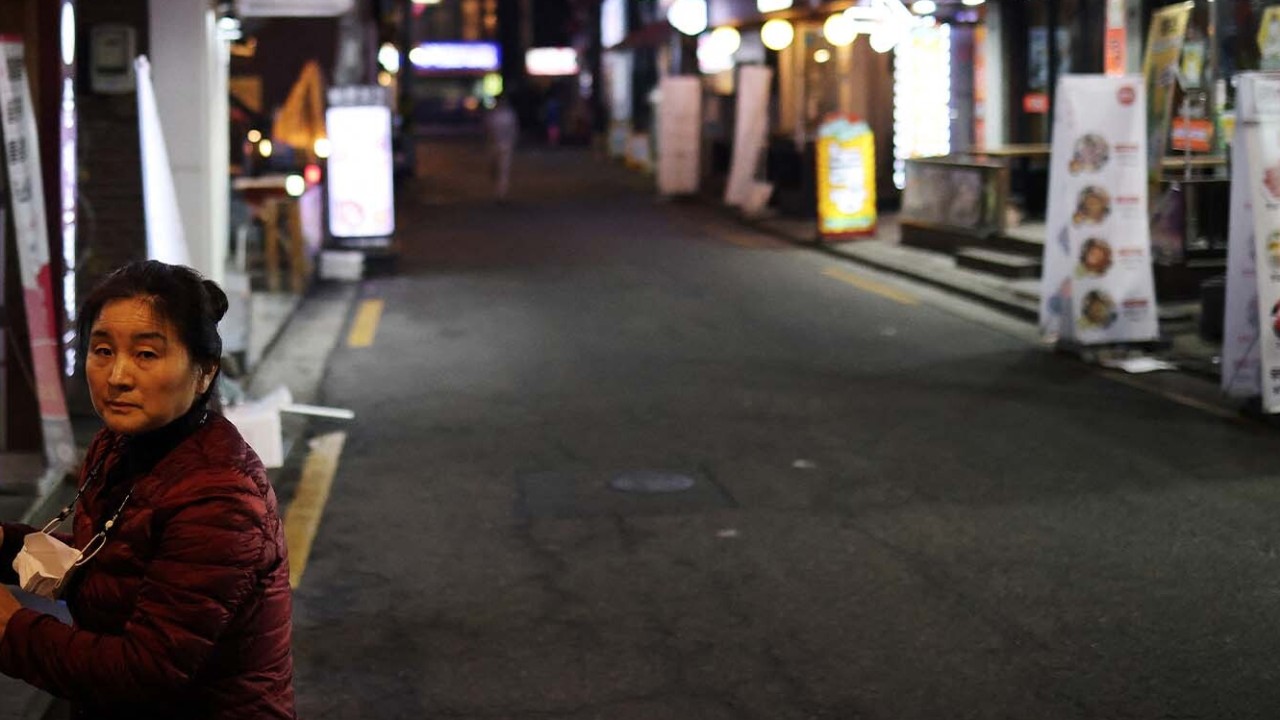
01:44
South Korea becomes first Asian country to use Pfizer pill to fight Covid-19

China has approved emergency use of Pfizer’s Covid-19 oral pills – in the country’s first foreign treatment for the coronavirus disease.
The pills, brand named Paxlovid, would be used to treat adults with mild to moderate Covid-19 with high risk of progression to severe disease, the Chinese drug regulator said in announcing the conditional approval on Saturday.
Such patients would include the elderly, and those with chronic kidney issues, cardiovascular or chronic lung disease, diabetes, and other high-risk factors for Covid-19, it said.
“On February 11, the National Medical Products Administration conducted an emergency authorisation review of Paxlovid in accordance with the special drug approval process and an approval with conditions was granted for the import registration of Pfizer’s Covid-19 treatment,” it said in a statement on Saturday morning.
Pfizer will be required to continue with research work and submit the results of follow-up studies for a general approval.
The approval could bring China one step closer to opening up the country, which is still responding to the pandemic with largely closed borders and strict public health interventions, such as contract tracing and lockdowns. Effective therapeutic treatment has been identified by public health experts, such as top respiratory specialist Zhong Nanshan in November, as one of the conditions for the country to fully relax controls.
Other pathways mentioned by Zhong included a less severe strain that limited the Covid-19 case fatality rate to less than 0.1 per cent, keeping the virus’ reproduction number within the range of 1.0 to 1.5, and establishing herd immunity with a high vaccination rate.
As of Monday, 1.22 billion people, or 87.1 per cent of China’s population, had been fully inoculated against Covid-19, including 459.8 million administered a booster shot.
However, the emergence of the highly transmissible new Omicron variant has rendered herd immunity a distant, almost unattainable goal – given the frequent reinfections.
The swift approval of the Pfizer drug is also in stark contrast to the fate of foreign-made Covid-19 vaccines, with none being successfully imported so far, despite several firms having signed agreements with their mainland partners.
The mRNA Covid-19 vaccine developed by German firm BioNTech was supposed to be commercialised and locally produced by Shanghai Fosun Pharmaceutical, but has yet to be approved by Chinese drug regulators after being stuck in administrative review for months.
Clinical trials showed Pfizer’s antiviral pill could reduce the risk of hospitalisation and death by 88 per cent when given to unvaccinated people at high risk of severe Covid-19 within five days of the onset of symptoms, according to results announced by the company in December. Last month, lab studies showed the pills were still effective against the Omicron variant.
Paxlovid was approved by the US Food and Drug Administration on December 22, for coronavirus patients aged 12 and above who were vulnerable to becoming severely ill.
The Chinese approval also marks the availability of the first small-molecular antivirals in China.
In December, a cocktail of neutralising antibodies jointly developed by Brii Biosciences and Tsinghua University was approved for emergency use after the combination treatment showed an 80 per cent reduction in hospitalisation and deaths in Covid-19 patients at high risk of developing severe disease.
But that treatment, which requires intravenous infusion, was developed before the emergence of the highly transmissible Omicron variant, which is better at evading immunity protection from previous infections or vaccination. Lab tests showed one of the two antibodies had a substantial drop in neutralising activity, although the treatment still held up well against the new strain, according to a statement from Brii in December.
Several Chinese firms have been authorised by the UN-backed Medicines Patent Pool (MPP) to produce the raw ingredients and finished product of a generic version of Merck’s oral antiviral medicine molnupiravir, but those would only be supplied to low-income countries and not be sold in China.